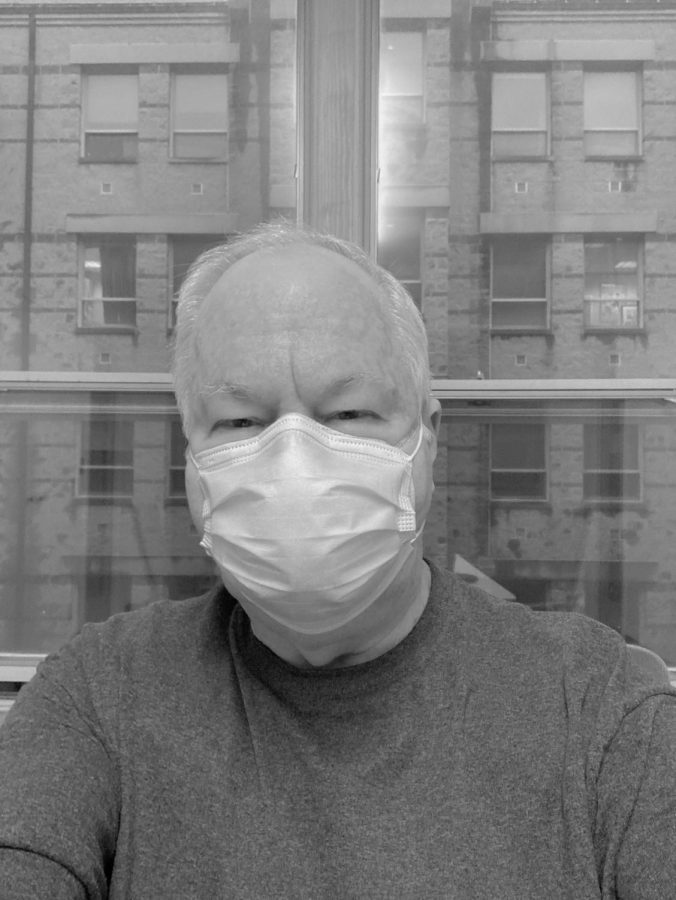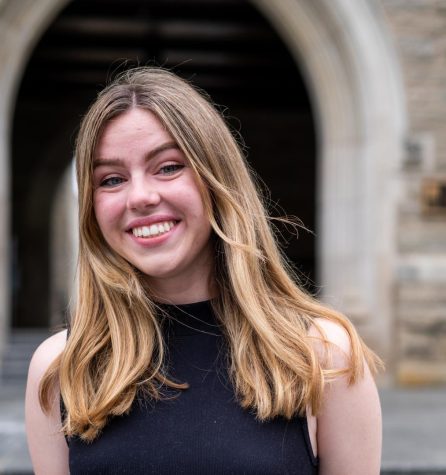University Professor Encourages Students to Wear Masks
March 23, 2022
On Feb. 11, University President Rev. Peter M. Donohue, O.S.A., Ph.D., informed students, staff and faculty via email that the indoor masking requirement would be lifted effective Monday, Feb. 14. The responses of University community members varied greatly, with some praising the lifting of the mandate as a “surprise that is worth celebrating as a community” and others explaining that it “feels like a slap in the face.”
Those in favor of lifting the mask mandate cite the fact that “the [University] community is for the most part young, healthy and vaccinated.” Those on the other side of the spectrum highlight that “for the most part” does not encompass all members of the University community, specifically leaving out those most vulnerable to contracting coronavirus and suffering serious complications as a result.
Among the most vulnerable is Dr. David Barrett, a Political Science professor, who underwent a successful lung transplant last April. Barrett explained that he is currently on “three medications that try to prevent [his] body from [rejecting the new lung].”
“The problem is that those drugs also suppress my immunity to viral and bacterial infections,” Barrett stated. “So, while most Villanovans have achieved good immunity to Covid from their vaccinations, I unfortunately have, according to medical tests, almost no immunity. It’s as if I was never vaccinated.”
Barrett shared some facts, supported by various doctors and medical publications.
“Compared with the general vaccinated public, [organ-transplant recipients] are 82 times more likely to get breakthrough infections and 485 times more likely to be severely ill,” he said. “Should they get infected, their risk of hospitalization is a coin flip. Their risk of death is one in 10.”
“Imagine walking around and being in society and thinking, if you give me COVID, I might have a 10 percent risk of dying,” Dorry Segev, a transplant surgeon at the Johns Hopkins University School of Medicine, told him.
Barrett was very disappointed by the University’s decision to drop the mask mandate.
“Why should Villanova follow other institutions in doing so?” he asked. “We are not sheep. Why shouldn’t we – a Catholic, Augustinian institution – be a prophetic university, giving a powerful example to the nation?”
He emphasized the important effect masks can have in protecting the lives of the immunosuppressed.
“While I of course wear a mask whenever I am in buildings other than my home, I, and others who are immunosuppressed, need students, faculty, and staff on campus to wear a mask also,” Barrett stated. “Is wearing one of those surgical masks really such a hard thing to do if it can protect vulnerable Villanovans, when the science is clear that masks make a big difference in preventing disease spread? I want to be very clear about this: if I get Covid, there’s a good chance I will die from it.”
While Barrett praised the University for its accommodation in allowing him to work from home and granting faculty the ability to require masks in their classrooms, he does not believe this is enough.
He urged the University to do more to encourage students to wear masks inside public areas of campus buildings. While the last University statement spoke of “showing respect” to those who wear masks, “putting community first,” and “having a mask” with us at all times, “such vague language sounds nice, but achieves little-to-nothing,” Barrett explained.
He also urged students to take action as individuals.
“I said earlier that Villanova should be a prophetic institution, but I also think that we as individuals should be prophetic and do the right thing,” he said. “If someone asks ‘Why are you wearing a mask?’ you can say ‘I know there are some people on campus who are very vulnerable, and I wear it for them. I want to do the right thing.’”
The University responded with the following statement:
“Our priority throughout this pandemic has been the health and safety of our community. Villanova follows guidance from the CDC, Pennsylvania Department of Health and Chester County Health Department, along with monitoring the prevalence of COVID-19 on campus—reported on our dashboard—and in the region.
“While masking is currently optional on campus, community members are expected to have a mask with them at all times. Faculty may require students to wear masks in their classes, laboratories or offices, and students and staff may ask the same of one another. University employees continue to have the option to apply for a medical accommodation. Everyone is expected to be respectful of requests to wear a mask and individuals’ personal masking decisions as part of our care for each other as members of the Villanova community.”
Regardless of the current situation, Barrett has a lot of hope for the future.
“One of my ambitions is to start going back into the buildings on campus…to go back into the Connolly Center,” he said. “I don’t know when that’s going to be possible, but I miss it a lot”



